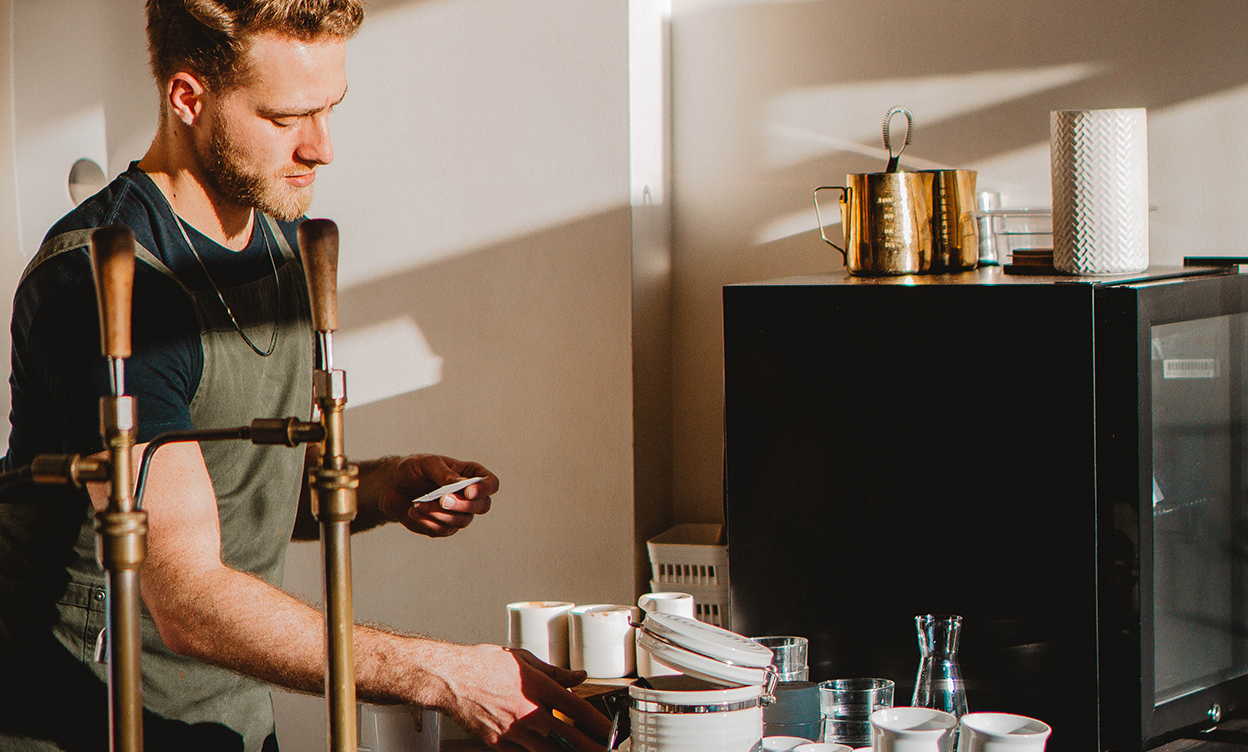
With a blazing determination to make a difference environmentally, KeepCup is the brainchild of Melbourne entrepreneurs Abigail Forsyth and her brother Jamie.
In this episode, we speak with Abigail Forsyth, co-founder and CEO of KeepCup. She shares the challenges of building a business around driving behavioural change and the never-ending decision making that comes with owning and running a business.
Listen and subscribe
About KeepCup
In the 1990s, Abigail and Jamie ran a successful chain of cafes in Melbourne. As concern around the environment and sustainability grew, they found it difficult to continue using disposable coffee cups when another solution – reusable coffee cups – was available. They decided to do something about it, and in 2009 KeepCup launched in Australia. The ethos of KeepCup and Abigail’s determination presents a great example of one person’s single-minded ability to turn challenges into opportunities and then leverage those opportunities for expansion into new markets.
A business built on behavioural change
Building a business based on driving behavioural change isn’t easy, and it was a gamble, but this excited Abigail. Originally, Abigail and Jamie were going to buy a reusable coffee cup and sell it in their stores, but they couldn’t find one that fit their needs. One of the business’s original manufacturers was sceptical, saying that if they couldn’t sell the prototype, they wouldn’t be able to sell the product. This experience shifted the way Abigail thought about the business.
Developing a compelling story and message
Some doubt arose when Abigail started wondering why everyone wasn’t thinking of creating a reusable coffee cup and why someone hadn’t been successful with this already. Reading the book Collapse by Jared Diamond got her thinking differently, too.
Quite often, it’s cultural elements that cause the collapse of societies. In the context of disposable cups, it was a cultural signifier of assuming it’s something “we have to have”, despite being unnecessary. Abigail believes this is the case with a lot of convenience single-use packaging. She wanted to be part of the change and convince people to use something else.
Design gets technical
When you see a KeepCup, the design looks sleek and simple, but a lot goes into designing a product that perfectly balances form and function. The KeepCup needed to replicate a disposable cup’s form and function, but the colour and design had to be attractive. This is where the designers brought valuable engineering and tooling to the product. Abigail learned it was the hidden things that are important. Carefully considered design elements ensured the cups are easy to clean, easy to use and reliable. Further, focusing on making the cup from single component materials that could be recycled or replaced was key in ensuring the business’s focus on sustainability was truly reflected in their product.
Pitching to the right audience
Early in the company’s journey, Abigail realised they needed to share its message with the right audience. There was no point in targeting green, environmentally conscious people who likely already had a reusable cup and weren’t in the market for another. They saw the opportunity to capitalise on the growing societal focus on climate change and what large corporations were doing to be responsible corporate citizens.
A big part of KeepCup’s growth came from selling their products to corporate customers who wanted to demonstrate their environmentally responsible focus internally and externally. Two of the company’s large initial orders came from household names in Australia. First, NAB ordered 5,500 cups after Abigail presented the company’s first draft prototype. And second, Will Young, the owner of Campos, ordered 10,000 cups in 2009. As one of the most popular coffee roasters in Australia, Abigail knew she was gaining traction with influential people and companies who could propel their growth.
Protecting KeepCup’s IP and dealing with copycats
Since the company started, KeepCup has seen plenty of copycat designs. Protecting their design and the company’s intellectual property has been a challenge. This challenge is driven by other players trying to compete and the price-conscious focus of corporate decisions makers who may not be able to see the value in the intricate design elements that make KeepCup a quality choice.
Dealing with the dilemmas of growth
In a company where success means the possibility of becoming obsolete, growth comes with a unique range of dilemmas. Finding new avenues for growth is one way Abigail helps the company maintain momentum, which was also a focus of other private and family-owned businesses surveyed for the Pitcher Partners Business Radar (PPBR) report.
KeepCup is now available in over 75 countries, and the company has an office, warehousing and manufacturing facilities in the United Kingdom and Australia. To date, the company has sold over 10 million cups, and continues its mission for a world that no longer needs, wants or uses throwaway cups.
“Brand in hand” is key
On outlining how the company wants to market itself, Abigail recalls, “If you tell your story well enough, your customers will be able to tell the business’s story”. Or, as a person from Coca-Cola said at a trade show she attended years ago, it’s “brand in hand”. Continuing to focus on behavioural change, great storytelling and working with influential companies and people remains core to its marketing strategy. Abigail is careful about blindly following the current digital marketing trend to follow and retarget people around the internet. She believes it dances a fine line in terms of ethics. As KeepCup grows beyond Abigail, she’s focused on creating a robust culture and team to keep this founding ethos alive.
When public interest aligns with your business
As a business focused on driving behavioural change with its products, the growing public conversation about the environment has served KeepCup well. In 2017, the ABC produced ‘War on Waste’, which featured a tram full of disposable cups to show Melbournians how many disposable coffee cups were used each day. It doubled the business overnight. Further, in 2018, the UK Government released a report revealing that disposable cups can’t be recycled, and if these cups couldn’t be recycled by 2022, they would be banned. It’s events such as these that keep Abigail positive that the tides are changing.
Overcoming setbacks and challenges
Like other private and family-owned businesses, keeping up with the pace of change and demands of continuous decision making has been crucial for Abigail. Further, she says an organisation’s people will make or break you. People and culture issues were noted as a common challenge for businesses surveyed in the PPBR report. Like these businesses surveyed, Abigail says that people issues keep her up at night, and sometimes it can make you question your abilities.
Despite the challenges of creating, growing and evolving KeepCup, Abigail enjoys the ups and downs and even the risks. On risk, Abigail summed it up perfectly, “Life itself is a risky proposition, isn’t it? You’ve gotta be brave in this world just to keep going.”
Return to Radar for Growth and access our other client stories here.







